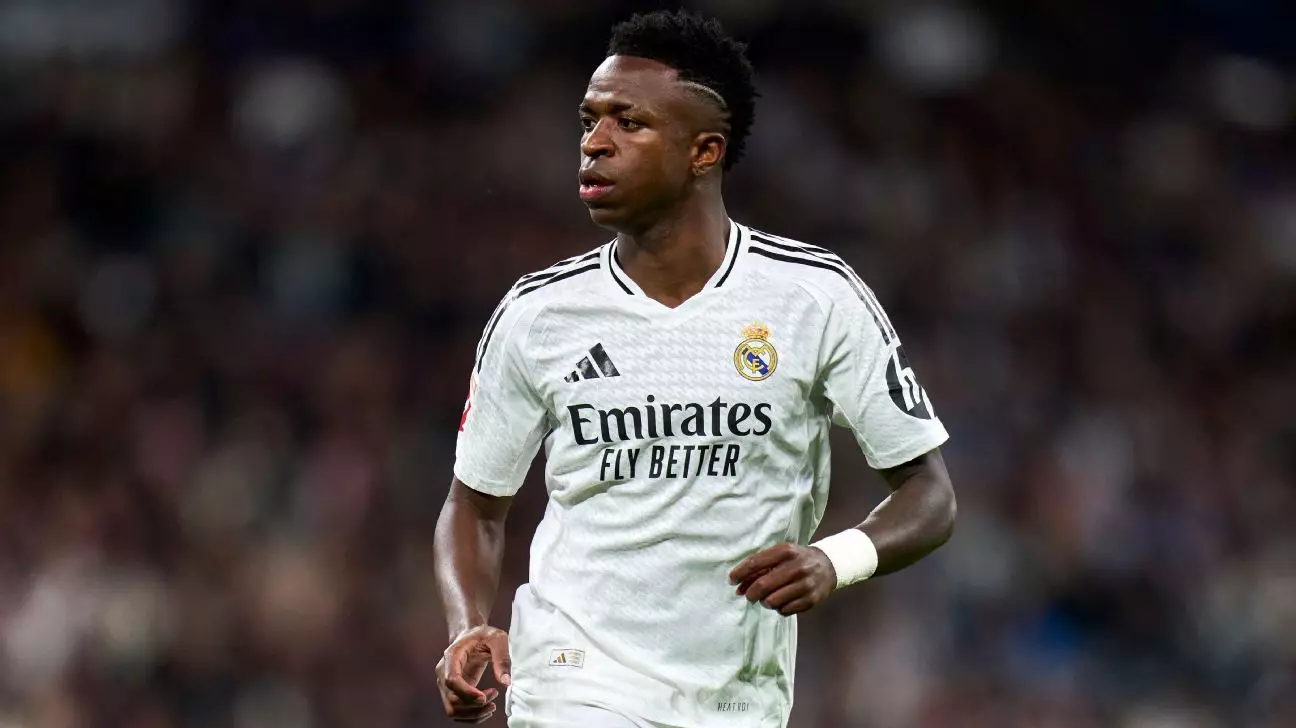In a significant development within Spanish football, a minor who racially abused Brazilian forward Vinícius Júnior during a match last season has made a formal apology. This incident occurred during a tense game between Real Madrid and Rayo Vallecano on February 18, where the intense emotions of the match were marred by disgraceful insults aimed at Vinícius. Following the identification of the minor, who faced legal repercussions due to his youth, an out-of-court arrangement was reached. This included a written apology and a required commitment to 40 hours of socio-educational activities mandated by the Prosecutor’s Office for Minors, alongside a one-year ban from attending any official football matches and a fine imposed by the State Commission against Violence, Racism, Xenophobia, and Intolerance in Sport.
Real Madrid has reacted positively to the disciplinary actions taken against the perpetrator, emphasizing the importance of addressing racism within the sport. The club stated that there have been multiple legal proceedings since June aimed at holding responsible individuals accountable for racially motivated actions against their players. In aligning with its commitment to combat racism, Real Madrid not only pursued legal action but also reinforced its dedication to safeguarding core club values that reject any form of racial discrimination. The strong tone of the club’s statement highlights the seriousness of the issue and its implications for the sports community at large.
Vinícius Júnior has emerged not just as a stellar player but as a prominent activist against racism in football. Since his arrival in Spain in 2018, he has endured significant abuse, revealing the deep-seated issues that plague not only the sport but also Spanish society. His acknowledgment of suffering due to repeated racial abuse has made him a central figure in the movement to combat discrimination in football. Instances of racial abuse have escalated over the years, prompting LaLiga and the Royal Spanish Football Federation (RFEF) to implement measures aimed at curbing such abhorrent behavior.
The legal action against fans who directed racial slurs at Vinícius has taken various forms, marking a pivotal shift in how incidents of racism are treated within the sport. Notably, in June, three Valencia fans received jail sentences for their abuse, a landmark ruling in Spain that sets a precedent for handling racial discrimination in football. Additionally, a court handed a suspended sentence to a Mallorca supporter for similar offenses, further demonstrating the legal system’s willingness to address the issue decisively.
Despite these steps forward, the battle against racism in football remains fraught with challenges. Incidents of racial abuse still occur, as evidenced by the October arrest of individuals involved in a hate campaign against Vinícius. The ongoing need for education and societal change is paramount, as sports should reflect inclusivity rather than division. Players, clubs, and governing bodies must continue to work collaboratively to foster an environment where all athletes, regardless of their background, can compete free from discrimination. The fight against racism in football is far from over, but with increased awareness and accountability, there is hope for a more equitable future in sports.

